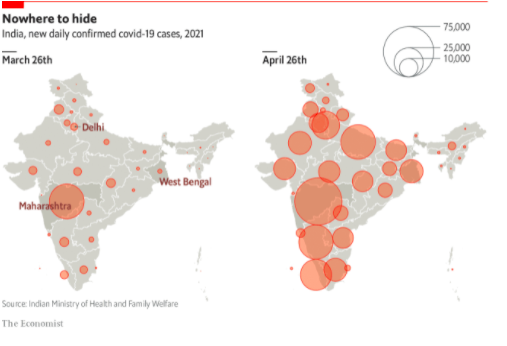Feed the hunger (Especially for migrants)
Join Hands for Immediate Relief Services for the poor and daily wage labourers in border areas of Khammam district impacted by COVID second wave.
- COVID and India – Glaring Realities
In India, COVID has acted as a stress multiplier, compounding existing uncertainties around food and agriculture, water and sanitation, employment and indebtedness, health, climate, and disaster response. The impacts of COVID are differentiated across class, caste, gender, race, religion and ethnic lines. They have been experienced more acutely by precarious, marginalized, and minority groups – who have largely remained ‘invisible’ in the trajectory of mainstream development.
India’s lockdown occurs during the critical summer and monsoon periods, when cyclones, floods and heatwaves had multiple impacts on vulnerable communities. Difficulties caused by the intersection of multiple compounding uncertainties show a need for government, NGOs, and community groups to work together on multi hazard preparedness.
In response to the pandemic, both short-term and long-term measures are required. While short-term measures should focus on immediate relief and protection, long-term measures must build robust processes to deliver effective responses and guarantee rights to basic needs such as food, water, health, jobs and shelter.
COVID has laid bare the structural inequalities within Indian society, creating further marginalization and stigma. The impact of lockdown was felt more keenly by already marginalized and vulnerable sections of society, such as daily wage laborers, migrant workers, Muslims, Dalits, women, LGBT+ people, and those with lower levels of education, many of whom have been stigmatized as a result of the virus. For example, 43% of the SC (down trodden people) and 46% of the ST (down trodden people) households doesn’t have lastmile coverage about COVID symptoms and protective measures from healthcare workers. Around 66% of SC (Scheduled Cast- down trodden people) and 79% of ST (Scheduled Tribes – down trodden people) households were not aware of free testing and treatment provisions by the government health initiatives, with only 14% registered with the scheme. In a shrinking economy, it is harder for members of marginalized groups to secure and maintain employment, access healthcare and relief.

2. Border villages of Khammam district in Telangana
Because of the pandemic, the daily wage workers, migrants and marginalised people are not able to get their daily needs. Losing hope on the government’s promises in distribution of essential needs, the migrant labourers and the daily wage workers are migrating to their native places. They are jobless, not able to buy the food materials and not able to pay rent for the houses, where they stay. They are further victimised by the effect of the Corona continues. Such incidence are very high in united Khammam district, Telangana state.
- The district of Khammam has unique features viz., composition of urban, rural & tribal populations, bordering Andhra Pradesh region and Chhattisgarh and Orissa, dense forests, presence of extremists. It has the high prevalence of Tribal communities like, ‘Guttikoya, kondareddlu, lambada and chenchulu’ and others
- The vulnerability of people has increased due to emerging livelihood, rise in the cost of living, unemployment, poverty, lack of proper implementation of government schemes in time, and emergency locked down the system.
- With reference to Khammam, the prominent migration issues are: trans-border unsafe migration of people between Khammam & Chattisgarh and Orissa States, lack of standards of care planning and establishing an accountable system, such vulnerable people are not able to get entitlements from the government. In the city of Khammam and major urban areas from varied tribal communities are employed as daily labourers in agriculture sector, bricks & mines, either in petty shops, domestic helps, rag picking and other menial chores.
Implementation gaps by district administration:
- The government is unable to take the goods /provision services to slums and backward areas, those heavily affected by the situation.
- Sanitation problems are in high-risk areas of Khammam district
- Ignorance of public about this issue is clearly seen and felt;
- Lack of sanitation for staff members in the municipality
- Lack of masks and sanitizers for marginalized families;
- Migration of people at some places are very high (Khammam to other districts and states)
- Increasing of prices of goods and vegetables; they do not have food provisions;
- Ground level and village level monitoring mechanisms are being neglected.
- Poor families cannot afford to have medication facilities and intensive care.
3. Proposed Interventions/Activities of Immediate Relief Services
The Support will be ensured to 750 families in the targeted locations of United Khammam district, people those who are in most difficult circumstances like:
1. Migrants
2. Daily wage workers
3. Tribal and
4. Shelter-less people.
Areas to be covered and identified families in need:
- Pumpingwel Road: 120 families
- Ranganayakual Gutta: 50 families
- Ramana Gutta: 45 families
- Kanapuram : 105 families
- Tekulapally : 60 families
- Gopalapuram : 25 families
- YSR colony: 100 families
- Pavalvancha: 160 families
- Badhrachalam: 85 families
750 families will be followed up by their guaranteed job placement after the locked down period and provided regular counseling as per the need.
- The present SCOPE-RD office will be used as counseling center and it will be a nodal for jobs creation and follows. The existing staff will facilitate the process.
Direct Interventions/Activities of the program:
- Distribution food on daily basis for 750 families in target areas
- Distribution masks and sanitisers on daily basis for 8000 people in target areas
- Advocate and lobby with district administration regarding medical help and further employment and entitlements of vulnerable families in Khammam district.
- Follow up of children’s education in vulnerable families affected by Corona.
- Ongoing motivation and counseling on prevention mechanisms of Coronavirus and stay safe methods for beneficiaries.